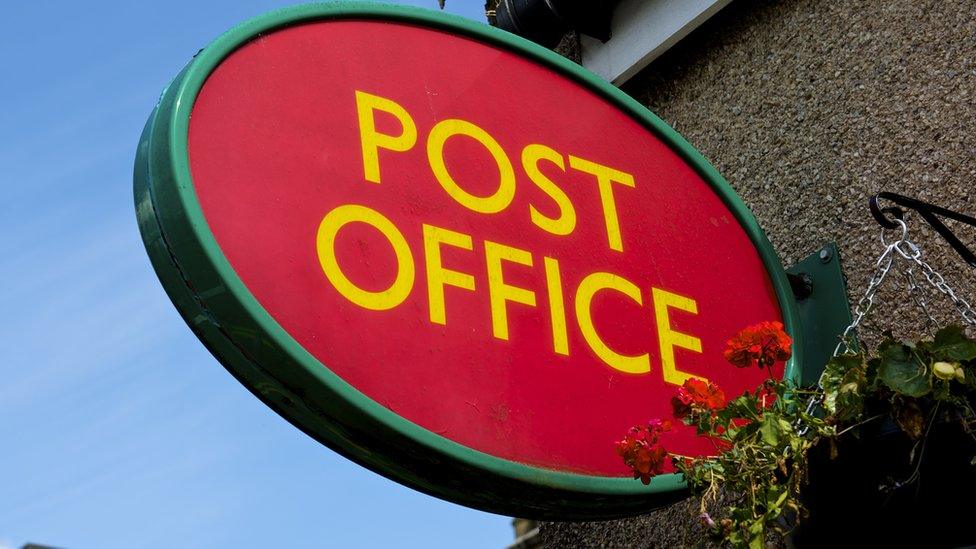Scots prosecutors told of Post Office IT concerns in 2013
- Published
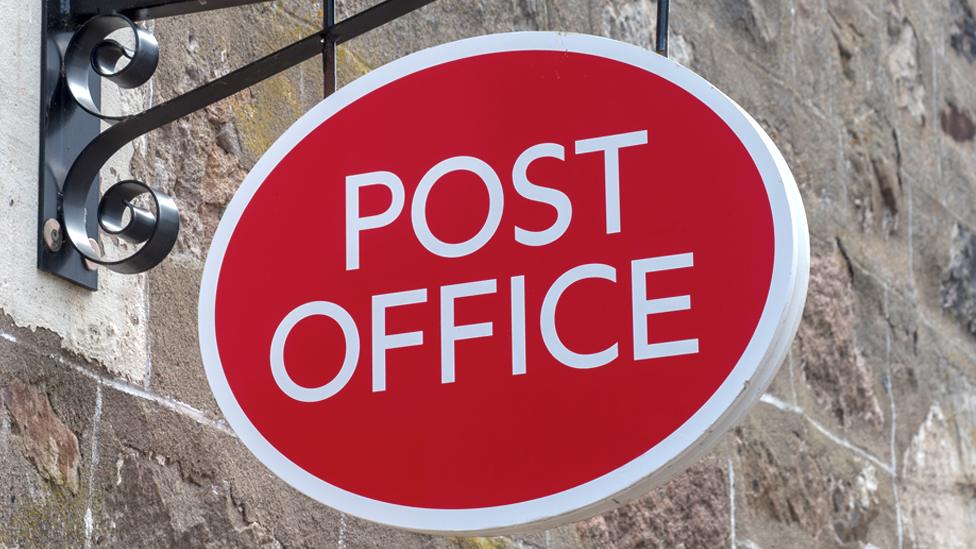
Scotland's prosecution service learned of potential problems with the Post Office Horizon IT system in 2013
Scotland's prosecution service became aware of potential problems with the Post Office Horizon IT system more than a decade ago, BBC Scotland has learned.
A Freedom of Information (FoI) request revealed the Crown Office was informed of possible issues in May 2013.
Up to 100 cases north of the border are estimated to be affected.
The news came as Justice Secretary Angela Constance told MSPs ministers were considering a scheme to pardon those wrongly convicted.
She was later asked when the Scottish government was first informed about the scandal but told BBC Scotland News: "I don't have that information to hand."
In Scotland the Crown Office and Procurator Fiscal Service (COPFS) had sole responsibility for prosecuting Horizon cases, whereas in England the Post Office acted as prosecutor.
Only two convictions in Scotland have been overturned so far.
Susan Sinclair was found guilty of one charge of embezzlement in 2004 after a trial at Peterhead Sheriff Court.
But her conviction was only overturned last year.
Stuart Munro, who represented Ms Sinclair, said: "Were other people prosecuted following that information becoming available?
"Ultimately, why has it taken until 2023 for the first convictions in Scotland to be overturned by the appeal court?"
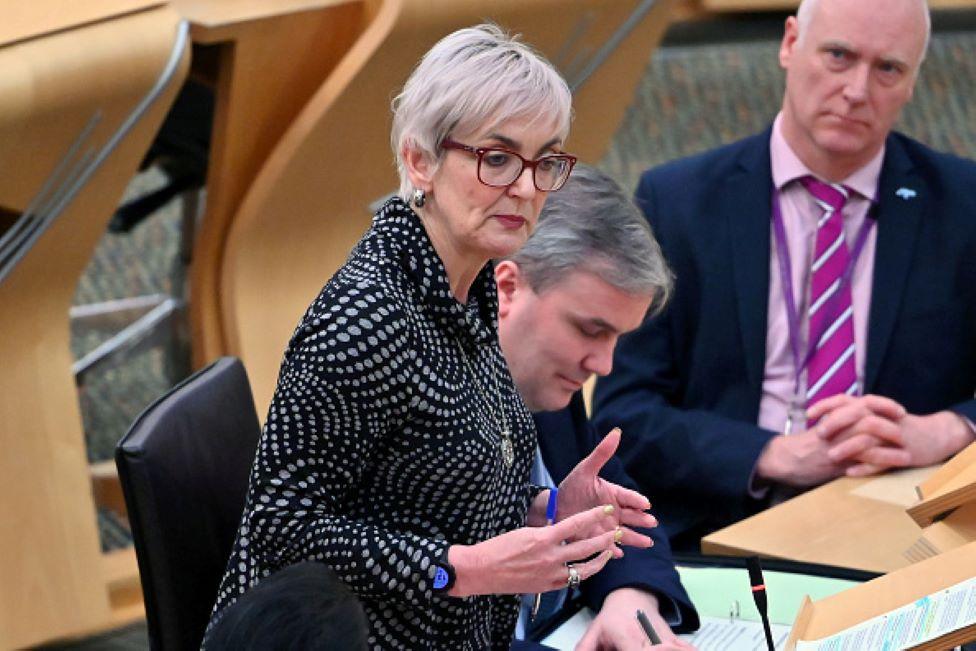
Justice Secretary Angela Constance answered questions in Holyrood on the Post Office scandal
The Crown Office said that they aimed to ensure "all miscarriages of justice resulting from unreliable evidence obtained from the Horizon system are identified and overturned".
Deputy Crown Agent Kenny Donnelly said: "COPFS estimates up to 100 Scottish cases may be affected.
"This is lower than in England and Wales due to COPFS policy decisions made in response to awareness of the Horizon system issues, and the fact that all cases in Scotland were prosecuted by the procurator fiscal under the application of Scots criminal law."

Kenny MacAskill was an MSP from 1999 to 2016
Kenny MacAskill, who was Scotland's justice secretary when the Crown Office first became aware of the possible problems, said that he had "no recollections" of any discussions with prosecutors or the Lord Advocate at the time.
He told BBC Scotland News: "In the ether people were aware of issues, but matters were still proceeding and it was, to some extent, under the radar.
"I'm sure Crown officials would not ever seek to prosecute somebody who they knew to be innocent but we need to be assured that they started to make inquiries [into the concerns]."
Mr MacAskill added that the scandal was "shameful" and that there had been a "conspiracy to silence" those affected.

Dr Andrew Tickell said Scotland was "just at the beginning" of addressing the miscarriage of justice
Dr Andrew Tickell, senior law lecturer at Glasgow Caledonian University, told BBC Scotland's The Nine: "The revelation that the Crown Office knew of problems is huge.
"Did they stop prosecuting? Did it occur to them that any of their cases before 2013 might now be unsafe because of these uncertainties?
"At the moment we know less about the Scottish dimensions of this scandal than we do about the rest of the UK."
Dr Tickell said Scotland was "just at the beginning" of addressing the miscarriage of justice, while England and Wales were "much, much further down the road".
More than 700 people across the UK were convicted of crimes such as theft or embezzlement on the basis on information from a faulty IT system.
Speaking in Holyrood, Ms Constance said she was seeking talks with the UK government about how best to pardon those affected while ensuring that they remain entitled to compensation.
The justice secretary added that around 80 people in Scotland who may have been affected by the scandal have now been contacted by the Scottish Criminal Cases Review Commission (SCCRC).
So far 93 convictions have been overturned across the UK.
And on Tuesday it was confirmed that Paula Vennells, who was in charge of the Post Office between 2012 and 2019, is to hand back her CBE "with immediate effect".
Related topics
- Published9 January 2024
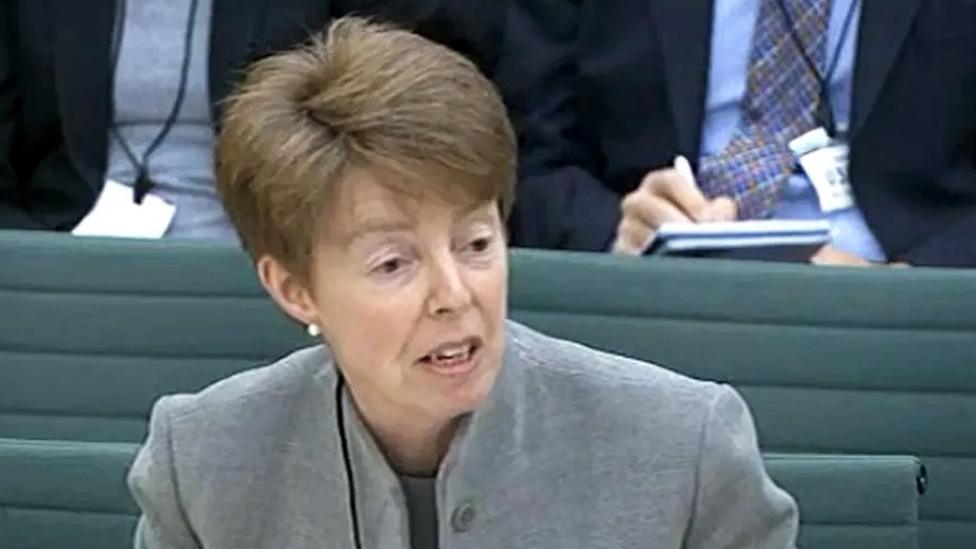
- Published8 January 2024
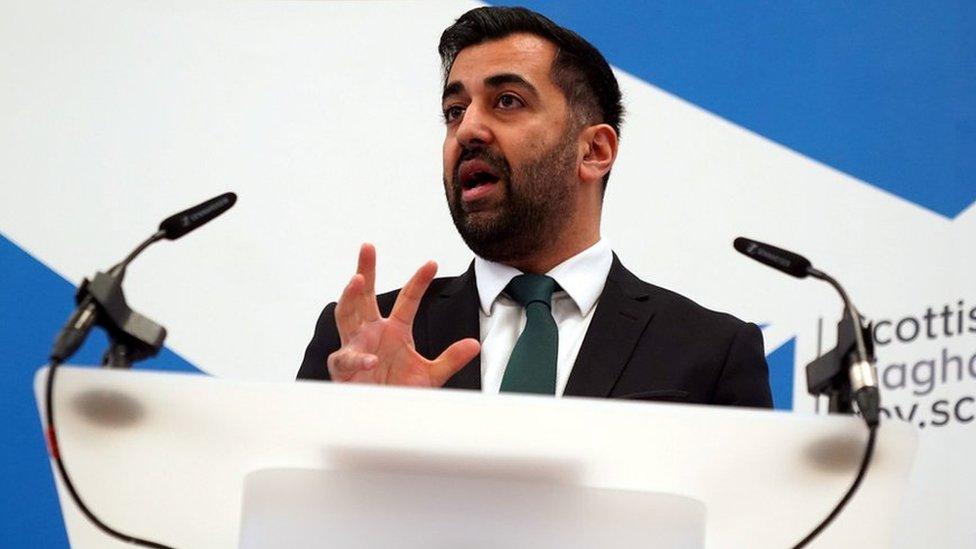
- Published13 March 2024
